
Maximilian Dröllner
Research associate, Curtin University
I am a Research Associate at the School of Earth and Planetary Sciences at Curtin University and part of the Timescales of Mineral Systems Group. My focus is on using state-of-the-art geochemical, mineralogical, and geochronological analytical tools to understand the main drivers shaping our beloved planet. My work covers a diverse suite of geoscientific research questions, ranging from the study of fundamental processes active during early Earth, to more recent earth surface processes and associated climatic changes.
Less ![]()
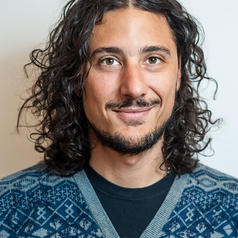
Maximiliano Udenio
Associate Professor of Supply Chain Management, KU Leuven
I’m an associate professor of supply chain management based in Leuven, Belgium. My expertise is in empirical and theoretical modeling of different aspects in which firms (should) behave in light of optimizing their performance. I’m particularly interested in deriving insights related to the way in which firms can improve their sustainability.
Less ![]()

Maximilienne Toetie Allaart
Postdoctoral Researcher in Gut Microbiome Research, University of Tübingen
My academic work delves into the fascinating world of microbes, those tiny chemists that, despite their invisibility, have a profound impact on life on Earth. During my PhD, I concentrated on harnessing individual or groups of microbes to transform toxic waste gases into valuable products. I approach this by metaphorically stepping into the microbes' shoes, aiming to understand their motivations and applying this knowledge to optimize industrial biotechnological processes. Since December 2023, I’ve shifted my focus to the human gut microbiome, exploring the complex interplay between these microbes and human health. With more microbial cells in our bodies than human cells, understanding their specific roles in maintaining health or contributing to disease is crucial. My current research is dedicated to unraveling fundamental questions in this field by taking the microbial perspective.
Less ![]()
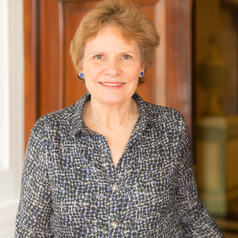
Maxine Berg
Professor of History, University of Warwick
Research Interests:
Global history, especially Asia and Europe in the early modern period; history of knowledge and technology; history of material culture, especially textiles, porcelain and luxury manufactured goods; also history writing and historiography 1920s - 1960s.
'Eurasian Trade and European Markets 1600-1830.’ This is a study of Asian export ware produced for and traded in the consumer markets of Europe and the Atlantic world. How did East India Companies, private traders and Indian and Chinese merchants design goods of wide appeal to Western markets, and organize their production and distribution systems in this long-distance trade in material goods and culture between Asia and Europe? How were these Asian-produced goods collected and displayed in European and American public and private interiors? What part did this Eurasian trade play in stimulating Europe’s consumer and industrial revolutions?
Wealth and Knowledge: the Transmission of Useful Knowledge 1600-1850’. A study of how craft, tacit and formal knowledge was transmitted among manufacturers, especially in luxury goods across Europe and between Europe and Asia.
International historical associations in the postwar era.
I am a member of GEHN (the Global Economic History Network). See Gehn (LSE)
Less ![]()

Maxine Calle
Ph.D. Candidate in Mathematics, University of Pennsylvania
Maxine Elena Calle is a Ph.D. candidate in Mathematics at the University of Pennsylvania, a 2020 NSF Graduate Research Fellow, and a 2023 Dean's Scholar. Hailing from a small beach town in San Diego, CA, she received her B.A. from Reed College in Portland, OR, graduating Phi Beta Kappa. Her research in abstract mathematics focuses on algebraic topology and homotopy theory. Maxine is also committed to creating a more inclusive, diverse, and anti-racist mathematical community, in which any person who wants to be a mathematician, can. To balance her academic life, she enjoys making art, playing music, and hanging out with her two cats, Job and Guppy.
Less ![]()
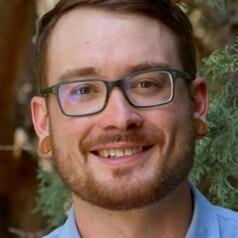
Maxwell Cook
Ph.D. Student, Dept. of Geography, University of Colorado Boulder
Max Cook is a graduate student working with Dr. Jennifer Balch in the Department of Geography. His work focuses on the social and ecological impacts of wildfires in the western United States. Specifically, he is interested in using "Big Data", including remote sensing, to understand the impacts of extreme fires and identify possible mitigation strategies for create fire-resilient communities. Max received his BS from Colorado State University in the Department of Forest and Rangeland Stewardship in Natural Resource Management and GIS. He has spent 5 years working with The Nature Conservancy in Colorado and Utah as a Geospatial Analyst, where he continues to work on applied conservation issues. In his free time, he is an avid angler, biker, and backcountry skier.
Less ![]()
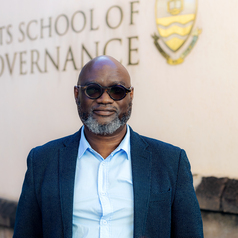
Maxwell Maseko
Postdoc Research Fellow - Digital Governance and Media, University of the Witwatersrand
My name is Dr Maxwell M. Maseko. I hold a PhD in public administration from the University of the Western Cape and have 26 years of experience working as a journalist in various news media organisations in South Africa. I am currently a postdoctoral fellow at the newly established Tayarisha Centre at the Wits School of Government. The centre conducts academically rigorous, cutting-edge research on the challenges and opportunities presented by digitalisation, especially in the public sector. My research interests lie in the fields of media and governance, particularly in areas of democracy, digitalisation in the public sector, protests, and citizen participation. I am interested in researching new methods of governance, innovation, politics, and protest.
Less ![]()

Maxwell Palmer
Assistant Professor of Political Science, Boston University
I am an Assistant Professor in the Department of Political Science at Boston University and a Junior Faculty Fellow at the Hariri Institute for Computing. I received my Ph.D. in political science from Harvard University in 2014.
I study American political institutions, including Congress, the judiciary, electoral institutions, and local political institutions. I am particularly interested in how rules shape individual decision making and on the effects of political time on institutional outcomes. My work has appeared in the American Political Science Review, the Journal of Politics, and the Journal of Empirical Legal Studies. My current research focuses on the returns to office for former politicians, local politics and institutions, and methods for analyzing redistricting plans and gerrymandering.
Less ![]()
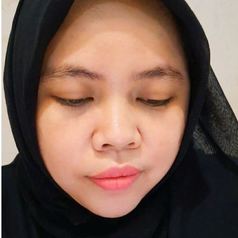
Maya Defianty
Dosen di Fakultas Ilmu Pendidikan dan Tarbiyah (FITK), UIN Syarif Hidayatullah, Jakarta, Universitas Islam Negeri Syarif Hidayatullah Jakarta
Less ![]()
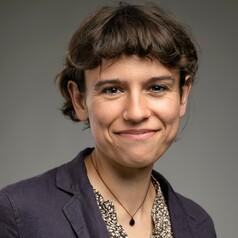
Maya Goldman
Resesarcher, SALDRU, University of Cape Town
Maya is a researcher and consultant working on inequality, poverty and fiscal policy. Her expertise is in distributional analysis, and she also enjoys more conceptual, and ethnographic style research. She currently works both for academic institutes like the Southern African Labour and Development Research Unit at the University of Cape Town and International Organisations like the World Bank's Equity Poverty Lab and the Global Development Network. She has a Masters in Economics (Public Policy and Development) from Toulouse School of Economics and was awarded an ODI Fellowship, during which she
worked in the governments of East Timor and Burundi.
Less ![]()

Maya Panisset
Senior Research Fellow, The University of Melbourne
Dr. Maya Panisset (she/they) is a clinician researcher (physiotherapist) with a PhD in Neuroscience from the University of Melbourne, specialising in neurorehabilitation, co-design and digital health. They have a passion for person-centred care and early intervention for people with neurological conditions. With a special interest in mobility, balance and falls prevention, Dr. Panisset was substantially involved in the development and conduct of an inaugural community-based trial of group-based exercise and social program for older adults at risk of falls utilising specially designed Seniors Exercise Parks, of which there are now fourteen parks installed in greater Melbourne and interstate.
Dr. Panisset specialises in the study of novel neuromodulation techniques to enhance neurorehabilitation, including the PONsTM device for translingual neuromodulation. As a Senior Research Fellow in the Dept. of Medicine (RMH), they currently coordinate a global-first early adaptive trial of transcutaneous spinal cord neuromodulation (TESCoN) led by Prof. Mary Galea to restore upper limb function in people living with tetraplegia, funded by the MRFF and TAC, and located within the Victorian Spinal Cord Service at the Royal Talbot Spinal Rehabilitation Centre.
The research team is also exploring the application of innovative non-linear metrics for walking and standing balance, utilizing inertial sensors (IMUs) in collaboration with the MS Immunology Centre at the Royal Melbourne Hospital. The ultimate goal is to create a mobile health tool that empowers individuals with MS to remotely monitor their condition, facilitating early detection of deterioration and ensuring timely access to preventative interventions. This is especially crucial given the absence of a cure for MS.
Less ![]()
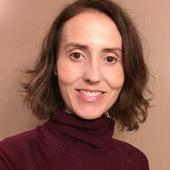
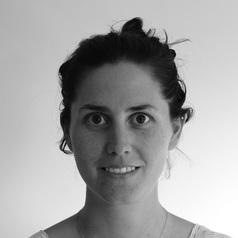
Maya Pasgaard
Adjunct assistant professor, Aarhus University
RESEARCH AREAS:
Integrated conservation and development projects in the Global South
Sociopolitical dimensions of Reduced Emissions from Deforestation and forest Degradation
Policy discourses concerning ‘equity’, ‘efficiency’, ‘effectiveness’ and ‘local community’
Actor networks and the multidirectional translation of policy and outcomes
Meso-level experts: conservation and development practitioners, community representatives;
Distribution, production and exchange of scientific knowledge, in particular on climate change
Securitization, expertise and the shifting governance of Ecosystem Services
Less ![]()
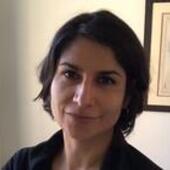
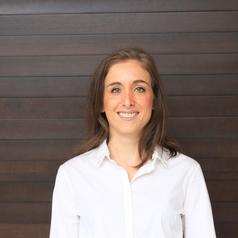
Maya J. Goldenberg
Professor of Philosophy, University of Guelph
My research expertise is in philosophy of science and medicine, and bioethics. My areas of research are public health, vaccines, women's health, science and values.
Less ![]()
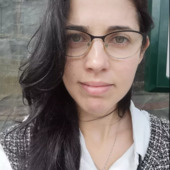
Mayara Silveira Bianchim
Research Officer in the School of Health Sciences, Bangor University
Less ![]()
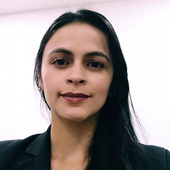
Mayerly Alexandra Guerrero Moreno
Doutoranda em Sociedade, Natureza e Desenvolvimento, Universidade Federal do Oeste do Pará (UFOPA)
Less ![]()

Mayme Lefurgey
Research Fellow, Department of Sociology, University of New Brunswick
Mayme is a Research Fellow with the Department of Sociology and the Muriel McQueen Fergusson Centre for Family Violence Research at the University of New Brunswick where her work primarily focuses on gender-based violence in rural Canada.
Prior to this role, Mayme was a Purdy Crawford Postdoctoral Fellow in Public Policy at UNB. She holds two master’s degrees in peacebuilding and a Ph.D. in Gender, Sexuality & Women’s Studies (collaborative program in Transitional Justice & Post-Conflict Reconstruction) from Western University.
Less ![]()

Mazarine Wairy Dupuich
Doctorante CIFRE sciences de gestion culture et consommation. Étude de cas CIFRE La Roche Posay : "L'expérience de thermalisme selon une perspective culturelle de la consommation : santé, bien être et pratiques de soins", Université de Poitiers
Actuellement en thèse CIFRE (Convention Industrielle par la Recherche) avec le Centre Thermal de La Roche Posay Groupe L'Oréal Division Beauté Dermatologique pour des recherches perceptuelles en observation participante sur l'expérience de consommation des patients et clients au sein des centres thermaux.
Parcours sciences sociales en intelligence économique, culture, commerce et consommation avec dimension internationale spécialisation zone Asie et Anglo-saxonne.
Currently completing a CIFRE thesis with the La Roche Posay Thermal Center group property of L'Oréal Dermatological Beauty Division on the thermalism experience from a cultural perspective of consumption : health wellness and medical practice.
Academic course in social sciences specialized in economic intelligence, culture, and consumption with an international dimension (Asian and Anglo-Saxon zones).
Less ![]()
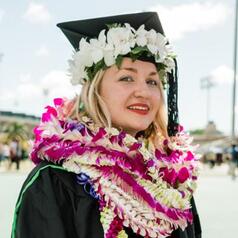
Małgorzata (Gosia) K. Citko-DuPlantis
Assistant Professor in Japanese Literature and Culture, University of Tennessee
Małgorzata (Gosia) K. Citko-DuPlantis is a scholar of premodern Japanese literature and culture. Arguing against closed systems of knowledge and interested in pioneering research on understudied subjects, she has published academic articles on the reception history of "Man'yōshū" (Collection of Ten Thousand Leaves, 759–785), the oldest extant collection of Japanese poetry, and medieval waka (Japanese court poetry). Originally from Poland, after graduating from the University of Hawaiʻi at Mānoa, she started her career at Florida State University as Dean's Post-Doctoral Fellow in Japanese Studies and joined the Department of World Languages and Cultures at the University of Tennessee, Knoxville in 2022. She teaches a variety of courses focusing on bridging premodern and modern Japanese intellectual history. Her newest research interests include the image of Japanese classical heroes in popular media, especially video games.
Less ![]()

Mbali Mazibuko
Senior Lecturer in Anthropology and Development Studies, University of Johannesburg
Dr Mbali Mazibuko is a young interdisciplinary feminist scholar interested in questions of rebellious femininities, popular culture and African feminist theorisations, power and society - among others. Her PhD analysed the role of rebellious black women in South African popular culture, with a focus on Brenda Fassie, Lebo Mathosa and Khanyi Mbau. Mbali is also a public speaker and facilitator.
Less ![]()

Mbali Sunrise Dhlamini
Lecturer on the New Generation of Academics Programme (nGAP) in African Language Studies, University of the Western Cape
I am currently waiting for my PhD results after I submitted for examination in June 2024. The title of my PhD thesis is 'Exploring a Common Learning, Teaching and Assessment Framework for the isiNguni languages in South Africa'. My supervisor is Professor Russell Kaschula. I am also a lecturer in African Language Studies at the University of the Western Cape employed under the New Generation of Academics Programme.
Less ![]()

Md Safiullah (Safi)
Senior Lecturer in Finance, RMIT University
Dr. Md Safiullah, CPA also known as Safi, serves as a Senior Lecturer in Finance at RMIT University, Australia. Safi's research work focuses on the fields of corporate finance, Islamic banking, sustainable finance and corporate governance. His original research appears in top-ranked peer-reviewed outlets, including the Journal of Corporate Finance and Energy Economics. He has published 18 papers, including 4A* and 13A, in ABDC quality-ranked journals, 1 media article in The Conversation after completing his Ph.D. from the University of Newcastle in mid-2018. He received over $120K national and international research grants. Safi's research expertise is recognized by being invited to speak at academic and non-academic events in Indonesia, Bangladesh, Oman, and the UK.
Before joining RMIT, he served as a Lecturer in Finance at La Trobe University and an Assistant Professor in Banking at the University of Dhaka. He taught multidisciplinary courses (Frontiers in FinTech and Innovations; Money and Debt Markets; financial institutions risk management, financial statement analysis, CPA-financial risk management and financial management) and has received several teaching and research awards at La Trobe University and RMIT University.
Safi has considerable engagement experience and has been the coordinator of the Finance external research seminar (2021–2022) and internal research seminar (2020), Course Adviser-International Business (2020), Stage 2 academic progress officer (2019), Course Adviser-Banking specialisation (2022), and member of the Academic Board at La Trobe University. He serves as a member of the Workload Allocation Committee (WAC), and Education Committee (LEAP) at the College of Business and Law, RMIT University. He also serves as an associate editor, a special issue guest editor, an editorial advisory board member, and a reviewer of several ABDC-listed journals.
Dr. Safi received his PhD in Finance from the University of Newcastle on a fully funded postgraduate research scholarship. He received MSc with Distinction from the Birkbeck, University of London as a recipient of prestigious Commonwealth Scholarship awarded by the government of United Kingdom. Safi completed FinTech Certificate course with 92% marks from Harvard University, USA. He also achieved Certificate as a Carbon Literate from the Nottingham Business School, UK. He is also a recipient of Dean’s Honour Award and Dean’s Merit Award in his MBA and Bachelor (Hons) degrees, respectively. Safi was the winner of 2017 3-Minute Thesis competition at the Newcastle Business School, University of Newcastle. Safi stood 2nd in HSC Exam in Bangladesh.
Less ![]()
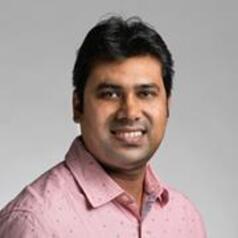
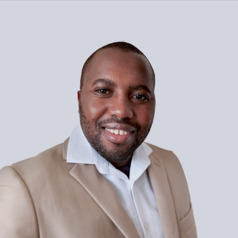
Mduduzi Mbiza
Research Associate, University of Johannesburg
I am a professional writer and a researcher. I have contributed many articles to Daily Maverick, The South African, Voices360, EduOne, The Latest, News24 (Book Reviews), Mail & Guardian. I am a self-taught individual with experience in graphics design and website development through WordPress.
Less ![]()
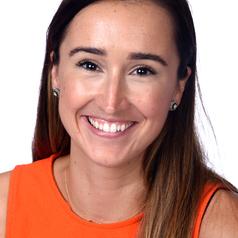
Meagan Hamilton
PhD Candidate, Department of Curriculum, Teaching and Learning, Ontario Institute for Studies in Education, University of Toronto
Meagan Hamilton (she/her) is a white settler high school educator based on Treaty 13 territory. She is currently pursuing her Ph.D. at the Ontario Institute for Studies in Education (OISE) in the Department of Curriculum, Teaching and Learning. She completed her Masters of Education degree at OISE in 2017 with the Department of Leadership, Higher and Adult Education with a focus on community development and Indigenous health. Her research interests include anti-racism and anticolonialism education, critical whiteness in education, and intersections of privilege and marginalization in service-learning education. She was the mentoring editor of in:cite, a youth-run online research journal from 2021-2022, and part of the Indigenous Literatures Lab at the University of Toronto from 2022-present.
Less ![]()

Meaghan Efford
Postdoctoral Research Fellow, Institute for the Oceans and Fisheries, University of British Columbia
Less ![]()
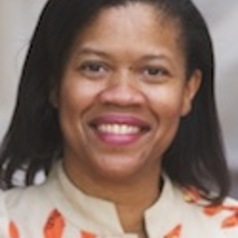
Mechele Dickerson
A. Mechele Dickerson is a law professor at the University of Texas at Austin. She holds the Arthur L. Moller Chair in Bankruptcy Law and Practice at the University of Texas School of Law. Before she joined the law faculty at UT Law, she was a member of the faculty at William & Mary Law School.
She is the author of “Homeownership and America's Financial Underclass: Flawed Premises, Broken Promises, New Prescriptions.”
Professor Dickerson teaches classes on consumer law, debt and spending to law and undergraduate students and is a nationally recognized expert on consumer debt and bankruptcy law. Dickerson's current research explores the causes and consequences of consumer debt and examines how the culture of debt and consumption in this country has been perceived, and has shifted, over time.
Professor Dickerson received both her B.A. and J.D. from Harvard University.
Less ![]()
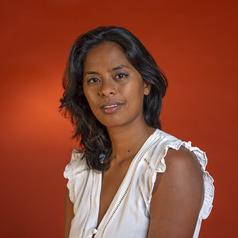
Meelan Thondoo
Research Associate, University of Cambridge
Meelan Thondoo is a medical anthropologist and environmental epidemiologist working in the global health arena. Meelan's research interests are in city-level health impact assessments (HIA) and multi-sectoral interventions and integrated policies for health. In 2017, she was selected as a Transglobal Health Fellow for the European Commission Joint Doctorate Program (EMJD) and completed a PhD in Medicine and Translational Research. She is currently a Research Associate at the MRC Epidemiology Unit, University of Cambridge.
Meelan's work focuses on the health impacts of urbanization, motorization and climate-change in cities of fast developing countries. She performs transdisciplinary Health Impact Assessments (HIAs) and applies mixed-method tools to tackle health inequalities and reduce preventable disease and injury caused by environmental, social and economic determinants of health. She focuses on urban-specific health exposure pathways including air pollution, physical activity, heat, blue and green spaces, noise, traffic injuries, and food.
Less ![]()
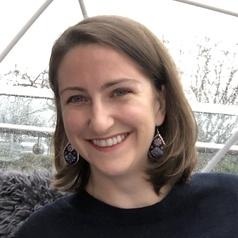
Meg Leja
Associate Professor of History, Binghamton University, State University of New York
Meg Leja specializes in the political and cultural history of late antique and medieval Europe. Her research interests range widely across gender history, religious studies, reception and manuscript studies, and the history of science. Her first book, Embodying the Soul: Medicine and Religion in Carolingian Europe, published with the University of Pennsylvania Press in 2022, explores changing perceptions of the body and the value of medical knowledge in the early medieval period. Drawing out points of symmetry between the extant ninth-century medical corpus and other forms of Carolingian literature, it examines how intellectuals and anonymous scribes wrestled with the theological ambiguities of intervening on the body and tied practices of self-care to evolving ideas of individual responsibility. Her current research projects deal with visionary literature in the Carolingian realm, the scope of Latin medical material before the twelfth century, and legal conceptions of necessity and exemption in the early Middle Ages.
Leja has held fellowships at the University of Pennsylvania’s Wolf Humanities Center, Binghamton’s IASH, and Princeton’s Center for the Study of Religion. She is affiliated with the Center for Medieval and Renaissance Studies and the TAE in Material and Visual Worlds.
Leja teaches survey courses on early medieval Europe and pre-modern medicine as well as a variety of thematic courses on healthcare and gender, death and disease, religion and culture in late antiquity, the Carolingian Empire, and Mediterranean environmental history.
Less ![]()
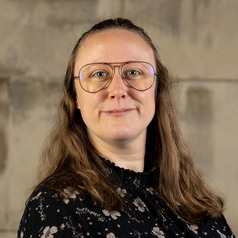
Meg Meredith
PhD Candidate, School of English, University of Sheffield
Meg studies how soil is represented in literature, and what this tells us about our relationship with the land and our wider environment. Part of her current research involves speculating what the East Yorkshire landscape might look like in the future, based on what we know about the soil and using future climate projections.
Less ![]()
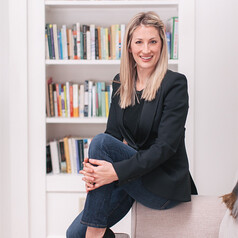
Meg Popovic
Senior Director of Research, Future of Sport Lab, Toronto Metropolitan University
Less ![]()

Meg D. Lonergan
Doctoral Candidate and Contract Instructor, Legal Studies, Carleton University
Meg D. Lonergan is a doctoral candidate in Legal Studies with a collaborative specialization in Political Economy at Carleton University in Ottawa, Canada. Their dissertation research focuses on obscenity law in Canada from a ghost criminological perspective utilizing a Derridean hauntological framework.
Meg has taught a variety of upper-year undergraduate courses in Criminology, Legal Studies, and Sociology at Carleton and Concordia. They developed two popular fourth-year seminars (Cultural Criminology and True Crime Media) and look forward to teaching them again this year.
Lonergan's research interests include: obscenity; moral regulation; sex and technology; violence; porn studies; cultural and critical criminology; law, culture, and the humanities; true crime; horror and gothic studies; qualitative methods and research ethics.
Less ![]()

Meg Leta Jones
Associate Professor of Technology Law & Policy, Georgetown University
I am a Provost's Distinguished Associate Professor in the Communication, Culture & Technology (CCT) program at Georgetown University where I research rules and technological change. Ctrl+Z: The Right to be Forgotten, my first book, is about the social, legal, and technical issues surrounding digital oblivion. My second book project, The Character of Consent tells the transatlantic history of digital consent through the lens of the familiar cookie. I am editing a volume with Amanda Levendowski called Feminist Cyberlaw that explores how gender, race, sexuality and disability shape cyberspace and the laws that govern it.
I'm now turning to what I call the "new family privacy," which considers the ways changes in reproduction, education, social development, eldercare, and genealogy come together as a currently disparate but potentially powerful source of contemporary privacy practice. I also make comics about and for tech law - I turn talks, debates, oral arguments, cases and research into comics.
In addition to CCT, I am core faculty member of the Science, Technology, and International Affairs program in Georgetown's School of Foreign Service, affiliate faculty in the Institute for Technology Law & Policy at Georgetown Law Center, faculty fellow at the Georgetown Ethics Lab, and faculty fellow at the Georgetown Gender Justice Initiative, and visiting faculty at the Brussels Privacy Hub at Vrije Universiteit Brussel. I work across campuses and disciplines at Georgetown as CCT's representative in the Tech & Society Initiative, support the undergraduate Tech, Ethics, & Society minor, and coordinate CCT's partnership in the Law Center's Masters of Law and Technology.
Advised by Paul Ohm, I earned a Ph.D. in Technology, Media & Society from the University of Colorado, Engineering and Applied Science (ATLAS). Prior to pursuing a Ph.D., I earned a J.D. from the University of Illinois College of Law, where I focused on technology and information issues. I have held fellowships and research positions with the NSF funded eCSite project in the University of Colorado Department of Computer Science, the Silicon Flatirons Center at the University of Colorado School of Law, the Harvard Berkman Center for Internet & Society, CableLabs, and the Kluge Center at the Library of Congress.
Less ![]()
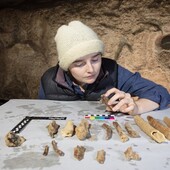
- Market Data





















